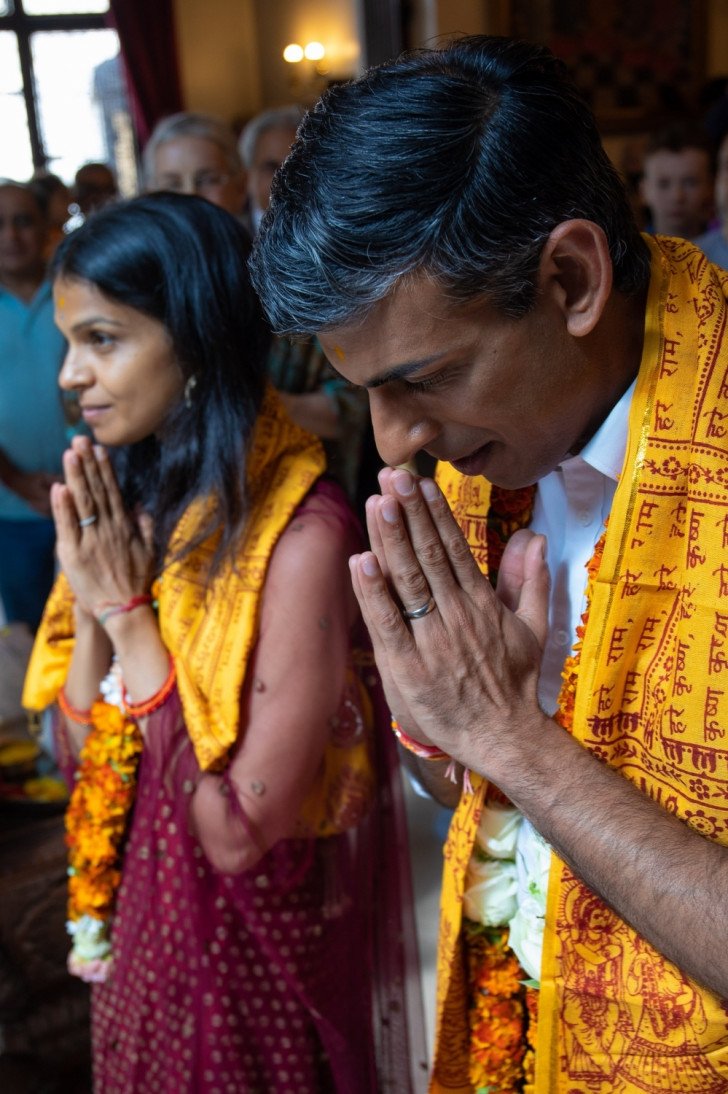America
Hindus among healthiest, highly qualified in England & Wales: Census

London, March 26
Hindus have the lowest prevalence of disability and the highest percentages of good health and highest levels of qualification among all religious groups in England and Wales, new census data revealed.
According to figures released by the Office for National Statistics, in 2021, 87.8 per cent of Hindus reported having either "very good" or "good" health, compared with 82 per cent of the overall population.
Hindus also had the lowest prevalence of disability (8.8 per cent), followed by Sikhs (10.8 per cent) and Muslims (11.3 per cent), well below the overall figure of 17.5 per cent for England and Wales.
Also, Hindus have the highest percentage of 'Level 4 or above' qualification at 54.8 per cent, compared with 33.8 per cent for the overall population, according to the figures based on self-declaration.
Only 31.6 per cent of Christians reported they have a similar level of education -- least reported by any religion.
The census further revealed that Hindus, followed by the Jewish, had the highest percentages in "professional occupations".
They had the second highest in "managers, directors or senior officials" occupations -- 14.2 per cent, and the highest percentage of people in "professional occupations" -- 34.3 per cent.
Home ownership varied considerably across religious groups with more than three-quarters or 77.7 per cent of Sikhs living in households that own their home -- the highest for any religious group.
People, who identified as "Muslim", were nearly four times more likely to live in overcrowded homes than the overall population of England and Wales.
Among the 3.9 million people who said they were "Muslim" in 2021, 32.7 per cent lived in overcrowded homes, compared with 8.4 per cent of the overall population.
Only 45.6 per cent of people who identified as "Muslim" lived in households that owned their home.
The census took place in England and Wales on March 21, 2021, and included a range of questions on housing, education and wellbeing, as well as asking everyone to indicate which group best described their religion.

6 hours ago
G20 Johannesburg summit calls for improving global governance

6 hours ago
EAM Jaishankar speaks to Ukrainian FM, discusses latest conflict-related developments

6 hours ago
PM Modi holds significant discussions with world leaders during Jo'burg G20 Summit

6 hours ago
US says Russia-Ukraine peace draft made with Moscow's 'input'

6 hours ago
Ukraine, US to hold consultations on peace plan in Switzerland

6 hours ago
Houthi court sentences 18 Yemeni UN aid workers to death for 'spying for Israel'

6 hours ago
Justice Surya Kant to take oath as 53rd CJI tomorrow

6 hours ago
Tejas pilot’s body brought to Coimbatore; IAF personnel pay tearful tribute

6 hours ago
The Third Eye: Strategic significance of transparency

6 hours ago
Gujarat CM changes his programme venue for citizen's wedding in Jamnagar

6 hours ago
'He is daydreaming': DKS dismisses Kumaraswamy's claim of 'explosive political developments' in K'taka

6 hours ago
TN govt brings Cuddalore’s Srimushnam taluk under Cauvery Delta region; over 18,000 farmers to benefit

6 hours ago
Bilateral trade to grow, investment to surge with proposed Israel FTA: Piyush Goyal






















